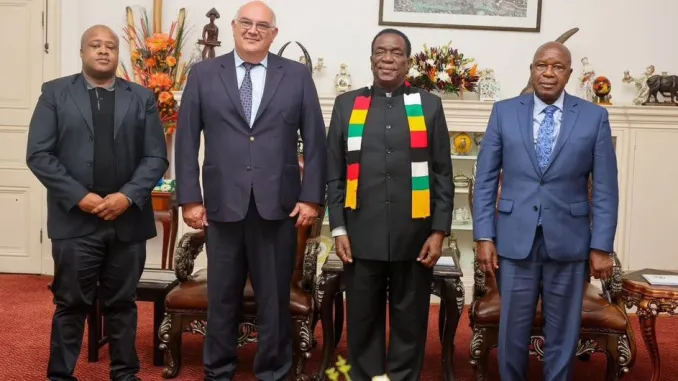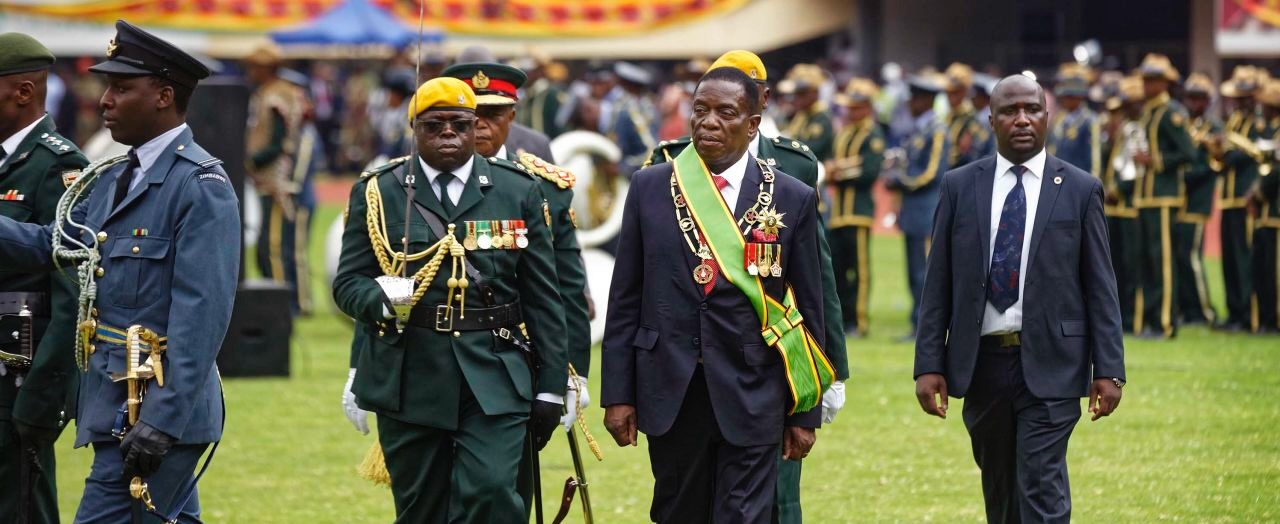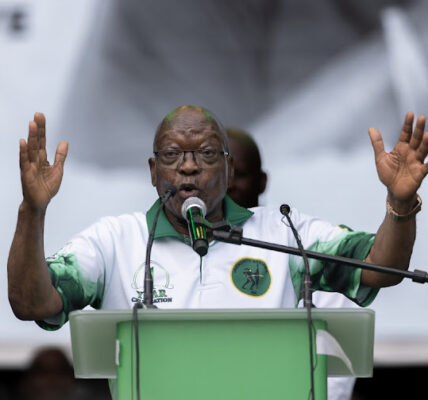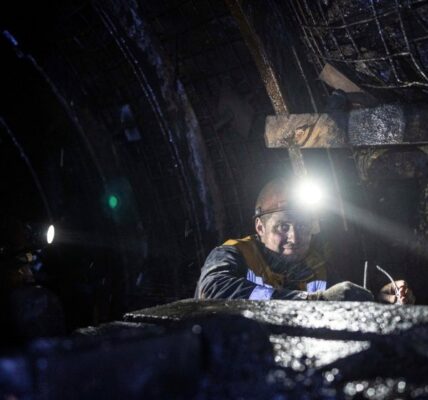Mnangagwa to engage Trump administration at World Bank meeting for US reset

Zimbabwe’s President Emmerson Mnangagwa is pursuing a diplomatic charm offensive to reset relations with the United States in the hope of ending sanctions and unlocking international financing.
US officials visited the capital Harare earlier this week for discussions and a Zimbabwean delegation is also set to meet representatives of President Trump’s administration on the sidelines of the World Bank meeting scheduled for 21–26 April, according to Washington sources.
The southern African nation has long been one of the most heavily sanctioned countries by the US, with the first set of sanctions imposed in the early 1990s during Robert Mugabe’s presidency.
The measures targeted human rights abuses, democratic shortcomings, and the controversial land redistribution programme that confiscated farms owned by white farmers. The sanctions included travel bans, asset freezes, and restrictions on arms sales.
When Mnangagwa succeeded Mugabe in 2017, the sanctions largely remained in place. Despite his initial promises of reform, Mnangagwa’s administration has faced criticism for continuing human rights violations and political repression.
In March 2024, President Biden lifted some sanctions through three executive orders. However, the Trump administration promptly introduced new sanctions targeting Mnangagwa, the First Lady Auxillia Mnangagwa, and his close aides, citing alleged human rights abuses and corruption. Furthermore, Trump imposed 18 per cent tariffs on Zimbabwe’s exports as part of his broader trade war.
Rather than retaliating or seeking regional alliances, Mnangagwa opted for a conciliatory approach. He announced on X that Zimbabwe would remove tariffs on U.S. goods, signalling a commitment to equitable trade and enhanced bilateral cooperation.
In his quest to reset relations with Washington, Mnangagwa has initiated further steps. These include a pledge to compensate white farmers for land seized during the controversial land reform programme and broader gestures, such as expressing solidarity with Afrikaners in South Africa.
In an interview with National Security News (NSN), Advocate Simba Chitando from the Zimbabwe Anti-Sanctions Movement described the land seizures as “madness” and stressed the importance of redress for rejoining the global financial system. Chitando revealed that Zimbabwe’s compensation target is $4 billion, with the process already underway.
Chitando emphasised the need to improve relationships with American financial institutions to gain access to loans. He described Zimbabwe as the country with “the highest concentration of mineral wealth per capita on the planet.” These, he said, are not just any minerals but “the minerals of the future,” including lithium, gold, and steel production.


































































































































































































































































































